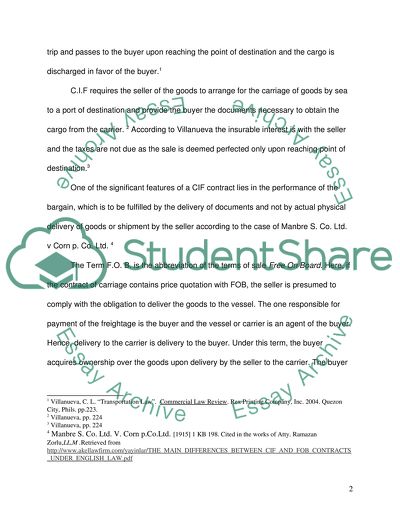Cite this document
(“International Sales Contracts & Carriage of Goods by Sea Essay”, n.d.)
Retrieved from https://studentshare.org/environmental-studies/1413153-international-sales-contracts-carriage-of-goods-by
Retrieved from https://studentshare.org/environmental-studies/1413153-international-sales-contracts-carriage-of-goods-by
(International Sales Contracts & Carriage of Goods by Sea Essay)
https://studentshare.org/environmental-studies/1413153-international-sales-contracts-carriage-of-goods-by.
https://studentshare.org/environmental-studies/1413153-international-sales-contracts-carriage-of-goods-by.
“International Sales Contracts & Carriage of Goods by Sea Essay”, n.d. https://studentshare.org/environmental-studies/1413153-international-sales-contracts-carriage-of-goods-by.


